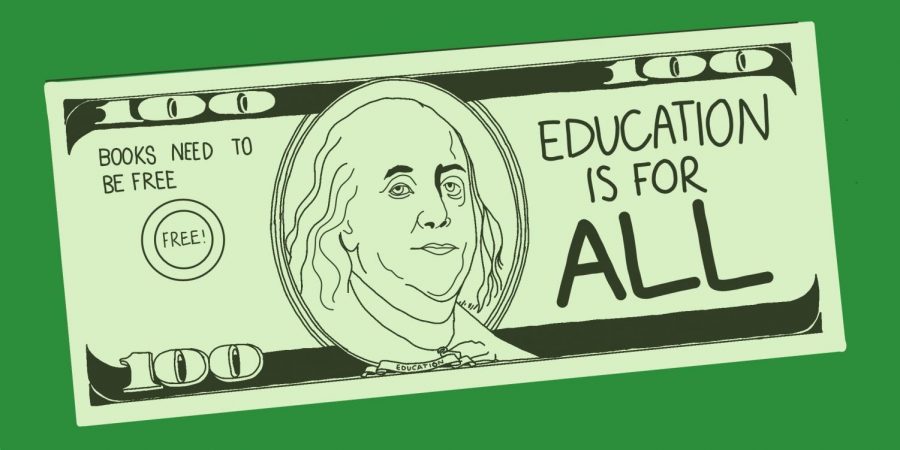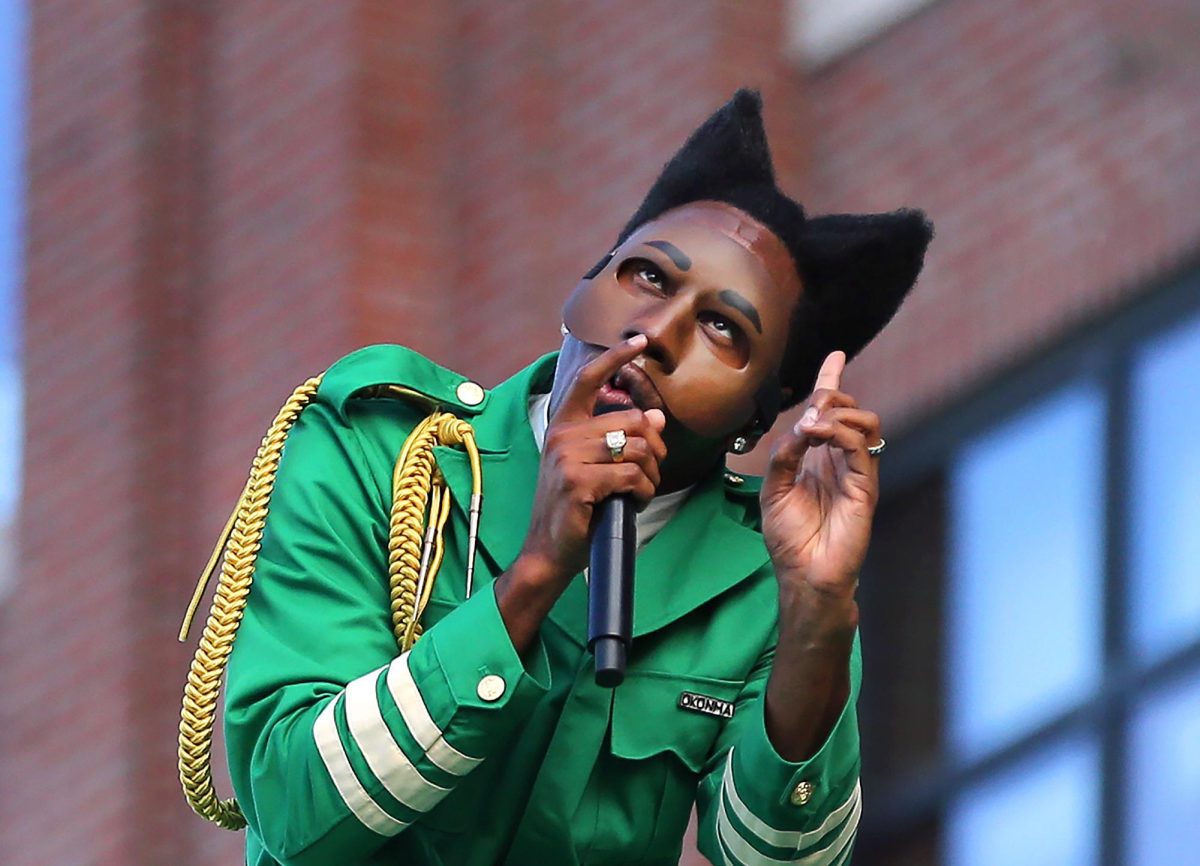Opinion | Inflated textbook prices reflect larger issues in the education system
February 1, 2021
I paid $240 to Vista Higher Learning so I can do my homework — graded, mandatory homework that should be accessible through Canvas — for the next three months. My wallet hurts, and I am full of rage at the institutions and systems that made this acceptable.
I’ve paid $240 on an online coursework platform to fill in some blanks with the new vocabulary words in Spanish every semester for four semesters in a row now. It often seems like institutions care more about the $250 million sports complex they’re building than about the fact that their students can’t afford groceries to feed themselves, let alone textbooks with senselessly hefty price tags.
During the 2019-20 school year, students spent an average of $1,240 on textbooks and supplies alone. That is slightly more than an average month’s rent for a one-bedroom apartment in South Oakland, and more than double the government’s $600 stimulus checks, something many college students don’t even receive. College textbook prices have inflated more than 1000% since the 1970s, faster than any other cost of college, and 51% of students who drop out of college do so due to financial reasons, including the high costs of textbooks.
What confuses me most is how universities — including Pitt — preach diversity and inclusivity, then allow their departments and professors to use textbooks that are grossly expensive, effectively leaving their low-income students — very often including students of color — behind. Putting diversity and inclusion first means being accessible, and affording all of your students the basic human decency of being caring and compassionate. Expecting students to spend so much money, especially during a pandemic, makes it hard to believe that universities prioritize their students’ well-being over their ability to make a profit.
A few companies dominate 80% of the textbook publishing industry, and they use a multitude of methods to keep their prices high and students buying more books and access codes. Digital textbooks and the one-time, one-semester access codes they come with are a prime reason for rising costs. Students are no longer just paying for a traditional, physical textbook that they can resell to another student. They are now paying for everything that goes into those ebooks, from the research to the coursework.
Almost four in 10 college courses require students to purchase access codes with their textbooks. These access codes do more than just drive up prices — they also eliminate other options, such as buying used textbooks, buying older editions, sharing a book with classmates or finding a free PDF copy online. These are often the methods that low-income students rely on to get their textbooks for the semester. According to CBS News, 65% of students avoid buying a textbook at least once during their academic career due to high costs, despite any effect it may have on grades.
Some professors have switched to free, open-source texts that are peer-reviewed, and often include all of the same things as their obscenely expensive counterparts with access codes, but without the price tag. However, only about 6% of schools use open-source textbooks, and open-source textbooks still pose a problem for students without reliable internet access, especially during the remote learning environment of COVID-19.
The costs of textbooks and the resulting lack of accessibility raises the question of whether or not education and learning are human rights and whether or not we should be paying for these things to begin with. If I’m not mistaken, that was the notion under which public libraries were created. It is massively unethical for universities to ask students to pay huge amounts of money for books when we already pay gigantic tuitions — all for something human beings have been doing for tens of thousands of years for free.
Education is not a privilege — it is a human necessity. Learning is an essential piece of all parts of Maslow’s hierarchy of needs — a guide that psychologist Abraham Maslow developed to illustrate the things human beings need to survive. Education is necessary in the final two parts of Maslow’s hierarchy of needs, esteem and self-actualization. Up until 12th grade, all students have access to a free, public education. However, students shouldn’t have to overcome systemic barriers or financial obstacles to get any level of education.
To professors and university departments this semester and for every semester to come, I beg of you, for the sake of making education accessible for all as it should be, use textbooks that are free. To universities and publishing companies, come clean to your students with the fact that you treat education like nothing other than a business to profit off of. Students pay you hundreds of thousands of dollars for the right to learn — it’s the least you can do.
Dalia Maeroff writes primarily about issues of psychology, education, culture and environmentalism. Write to her at DAM291@pitt.edu.




